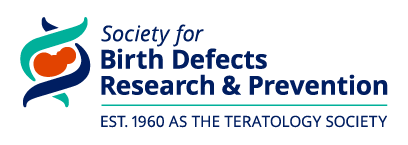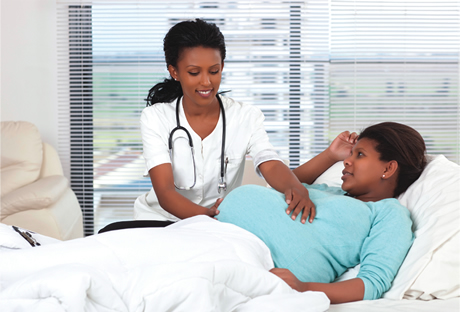Special Birth Defects Research Journal Issue Includes New Suggested Exercise Insights for Pregnant Women
Moderate exercise during pregnancy, such as walking on a treadmill, may lead to healthier infants according to a new study included in a special issue of Birth Defects Research. The journal is published by the Society for Birth Defects Research and Prevention in partnership with John Wiley & Sons.
The study by McDonald, et al., didn’t rely on self-reporting, which made the research especially reliable, according to Michiko Watanabe, PhD, co-editor of the special Birth Defects Research issue and professor at Case Western Reserve University School of Medicine. “The North Carolina team supervised a group of pregnant women during about 150 minutes of exercise per week,” she said. The 1-month-olds born to the women had lower body fat percentages compared to the control group, which is associated with a lower risk for obesity later in life. “Earlier studies primarily look at the birth weight of babies. However, this study indicated exercise during pregnancy may continue to have a positive effect as babies grow older.”

Other significant findings unveiled in the issue include those by Nagpal et al. that suggest exercise may help women before and during pregnancy who are struggling with substance use disorders. In addition, Ruben Barakat, PhD outlines a research-based exercise program modified for pregnant women that protects them from strains.
Articles making up the special issue include:
- “The Effects of Aerobic Exercise on Markers of Maternal Metabolism During Pregnancy” by McDonald et al. (DOI: 10.1002/bdr2.1780).
- “Moderate Intensity Aerobic Exercise During Pregnancy and One-Month Infant Morphometry” by McDonald et al. (DOI: 10.1002/bdr2.1671).
- “Cardiopulmonary Exercise Testing During Pregnancy” by Wowdzia and Davenport (DOI: 10.1002/bdr2.1796).
- “Physical Activity May Be an Adjuvant Treatment Option for Substance use Disorders During Pregnancy: A Scoping Review” by Nagpal et al. (DOI: 10.1002/bdr2.1803).
- “Physical Activity and Gestational Weight Gain Predict Physiological and Perceptual Responses to Exercise During Pregnancy” by Dobson et al. (DOI: 10.1002/bdr2.1808).
- “Maternal-fetal Outcomes of Exercise Applied in Rats with Mild Hyperglycemia after Embryonic Implantation” by Soares et al. (DOI: 10.1002/bdr2.1818).
- “Examination of Cortically-Projecting Cholinergic Neurons Following Exercise and Environmental Intervention in a Rodent Model of Fetal Alcohol Spectrum Disorders (FASD)” by Milbocker and Klintsova (DOI: 10.1002/bdr2.1839).
About BDRP
The Society for Birth Defects Research and Prevention (BDRP) is an international group of scientists who study birth defects, reproduction, and disorders of developmental origin. To learn about society membership, visit www.BirthDefectsResearch.org.
Also on Coast to Coast
-
Desert Harvest’s Newest Product: Providing Gentle Relief to the Body
-
A Cup A Day: Managing Diabetes One Beverage at a Time
-
Episode 27 of Coast to Coast: Checking out the Galleri Classic & Summer Travel Inspiration with Dalia Colón!
-
Coast to Coast Kicks Back at GBK Brand Bar’s Pre-Oscar Luxury Lounge
-
Episode 25 of Coast to Coast: Checking Out the Top Travel Destinations for Spring & the Pennzoil 400
